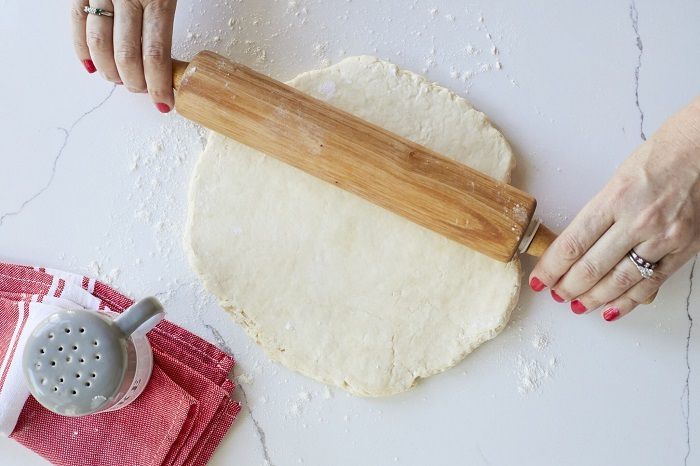Why Do Pastry Recipes Frequently Recommend Making Dough with Cold Water
Precision in the kitchen is essential for making delicate pastries and flaky pie crusts. Recipes for pastries often include detailed directions on how to make dough using cold water. But why is cold water a necessary component in pastry preparation? This article discusses the science behind this approach and its advantages to baked foods.
Temperature Matters in Pastry
To understand why cold water is often used in pastry recipes, you must understand temperatures. The key to creating the ideal pastry dough is striking the ideal balance between fat and flour. To achieve the desired layers and a soft, flaky texture, butter or lard, two typical fats used in pastries, should stay solid. On the other hand, the flour has to hydrate just enough to create a dough that is workable.
Fat Integrity is Preserved by Cold Water
Maintaining the integrity of the fat in your pastry dough is crucial for keeping it flaky. Cold water is added to the mixture to aid in maintaining the coldness of the fat, often butter. This is important because cold fat doesn’t properly incorporate with flour since it stays solid. Instead, you obtain discrete layers of flour and oil that, when cooked, give pastries their desired flakiness.
Lessening of Gluten Formation
The protein gluten, which may be found in wheat flour, is important for the texture of pastry dough. What you don’t want in pastries is a rough and chewy texture, which may be caused by consuming too much gluten. By preventing the proteins in the flour from forming bonds too rapidly, cold water aids in reducing the production of gluten. As a consequence, you get a pastry that melts in your mouth and is sensitive and delicate.
Control over the money
When creating pastry dough, using cold water gives you more control over the dough’s consistency. Because the hydration process is slowed down by cold water, you may add exactly the proper quantity of liquid to get the texture you want. To prevent sticky or dry dough, which might result in poor pastries, this management is vital.
Less overworking of the dough
Baking mistakes like overworking pastry dough often occur. You should handle the dough lightly and mix it just a little when using cold water. This avoids overworking, which may result in final goods that are harsh. Essentially, the cold water serves as a warning to handle the dough carefully.
Consistent Outcomes
Because it produces consistent results, cold water is often called for in pastry recipes. When making pastries, consistency is crucial since even little changes may have a big influence on the outcome. Regularly using cold water guarantees consistent results for home bakers and professional pastry chefs.
Cold Water in Warm Weather
Using cold water is much more important in warmer areas. Fats soften fast in warm temperatures, making flakiness difficult. In a heated kitchen, cold water helps pastry dough stay workable. You are now prepared to master the art of pastry-making and produce delicious ingredientes pasteleria for everyone’s enjoyment.
Conclusion
Cold water helps pastry-makers maintain fat, decrease gluten development, and manage dough consistency. It prevents overworking the dough and promotes consistency in hot weather. Remember that cold water is your secret weapon for optimum flakiness and suppleness in baked goods.
